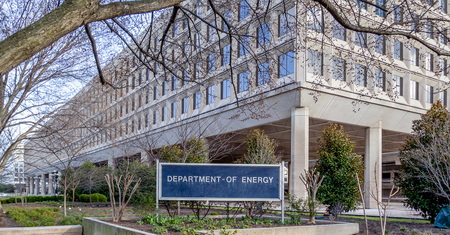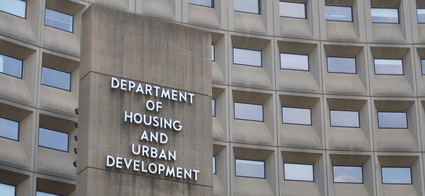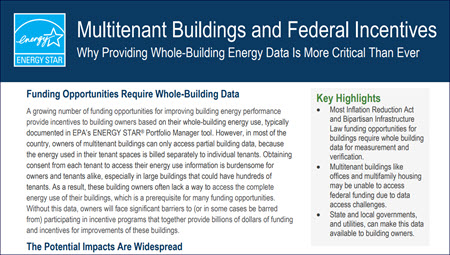
The Real Estate Roundtable sent a letter on Wednesday asking Congress to oversee nearly a quarter billion dollars in federal grants, used to back city and state efforts setting onerous energy and emissions regulations on buildings.
Congressional Hearing
- The oversight and investigations arm of the U.S. House Energy and Commerce Committee held a hearing Wednesday examining Biden-era energy and environmental program funding.
- RER submitted its letter for the hearing record, urging Congress to investigate $240 million in federal DOE grants pushing states and localities to adopt regulatory Building Performance Standards (BPS) (Roundtable Weekly, Sept. 6).
- BPS laws are like “EV mandates” for buildings. These state and local mandates aim to set “net zero” emissions targets for owners and tenants to stop using heaters, boilers, stoves and other appliances that run on natural gas — and “electrify” instead.
- No U.S. agency has the authority to require private sector building electrification. The U.S. Department of Energy (DOE) should not make an “end run” around this limit on its authority by issuing grants for BPS jurisdictions to accomplish indirectly what federal regulators can’t do directly, RER explained.
- RER’s letter requested reasonable “strings attached” to the DOE grants. BPS cities and states taking federal taxpayer dollars should be required to study fully the housing affordability, grid capacity, and market impacts of their “net zero” laws.
- RER has released a comprehensive, peer-reviewed 20-point policy guide for fair BPS mandates. The letter urged Congress to investigate whether jurisdictions receiving federal grants are considering issues raised in RER’s guide to achieve balanced building emissions regulations.
CRE Supports EPA ENERGY STAR

- RER’s letter also strengthened the real estate industry’s longstanding support for market-driven, voluntary, federal partnership programs like US-EPA’s ENERGY STAR program for commercial buildings, and US-DOE’s Better Buildings Initiative.
- These programs give building owners and developers standardized tools to monetize and forecast “massive energy savings,” help reduce strain on the power grid, and attract global capital to U.S. real estate.
- “At minimum, any state or locality that received federal grants to develop onerous BPS laws should not levy fines on buildings participating in federal partnership programs,” RER wrote.
- RER’s position advances the priorities of its Sustainability Policy Advisory Committee (SPAC), chaired by Anthony Malkin (Chairman and CEO, Empire State Realty Trust, Inc.). SPAC leads the organization’s energy advocacy agenda with a message centered on saving money, delivering profits, enhancing grid reliability, and attracting global investments to U.S. real estate.
- “Building energy, water, and waste performance drives savings, results, and delivers a healthier work environment,” said Malkin recently in a discussion with Paul Donofrio, Vice Chairman of Bank of America and Co-Chair of its Responsible Growth Council. (BofA Webinar, Feb. 18)
RER will continue to work with the Trump administration to identify opportunities for cost savings while highlighting effective government programs that create American jobs, grow the economy, and optimize America’s energy independence.




